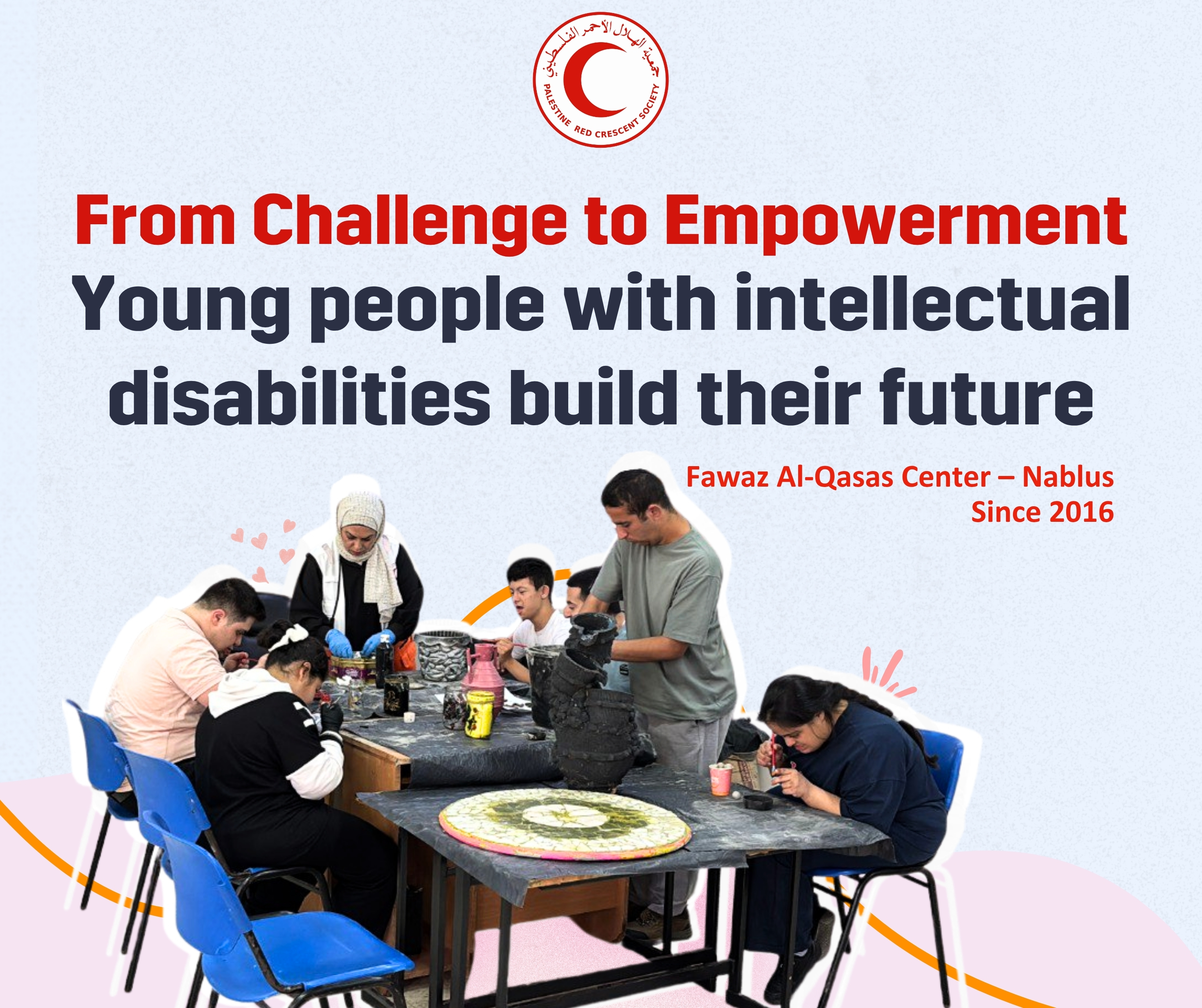Fawaz Al-Qasas Center: A Professional Opportunity on the Path to Inclusion

Fawaz Al-Qasas center, affiliated with the Palestine Red Crescent Society (PRCS) in Nablus, is considered a pioneering model focused on empowering young people with intellectual disabilities. This is accomplished through vocational and rehabilitation programs designed to effectively integrate them in the community.
The center’s primary goal is to invest in their intellectual and physical abilities to enhance their self-confidence, reduce the burden on their families, and help them achieve independence.
Established in 2016, after its founders realized the urgent need of providing special rehabilitation services for this significant group due to the lack of specialized programs for people with disabilities particularly those over the age of 16. It provides pre - vocational and vocational trainings that develop their skills and positively channel their potential, thereby enhancing their chances of integration into society.
According to the center’s director, Raja’ Al-Najjar, the center receives students between the ages of 16 and 22 who meet the criteria for vocational rehabilitation. These criteria include conducting psychological assessments to evaluate mental abilities, vocational interests, educational level, and personal characteristics, in order to ensure that the training program is tailored to each individual’s needs and abilities.
The student intake process follows a structured system based on referrals from partner institutions, such as the Ministry of Social Development, or special education centers, which refers students who have exceeded the age limit for enrollment, as Al-Najjar explained.
She added that the duration of rehabilitation typically ranges from one to three years, depending on each student’s condition and specific needs.
As part of the center’s program, specialized staff assess the students’ abilities and evaluate their strengths and weaknesses in order to create individualized rehabilitation plans tailored to their needs. This includes speech evaluations, occupational therapy, and both theoretical and practical training aimed at developing their vocational and manual skills.
According to Al-Najjar, the center offers simple vocational training programs tailored to the student’s abilities, such as handicrafts and modeling. These programs are carefully designed to match their competencies and ensure successful completion, with the goal of utilizing their physical energy and maximizing its benefits.
Asma’ Bsharat, the teacher responsible for handicrafts course, emphasizes that each training plan is developed with great care, taking into account the students’ varying levels, and focusing on achieving educational and vocational goals.
Al-Najjar noted that the center continually strives to empower these young people to showcase their skills and achieve social integration. This center stands as a model of efforts Palestinian society’s efforts to include people with disabilities in everyday life and to promote the values of inclusion and coexistence.

